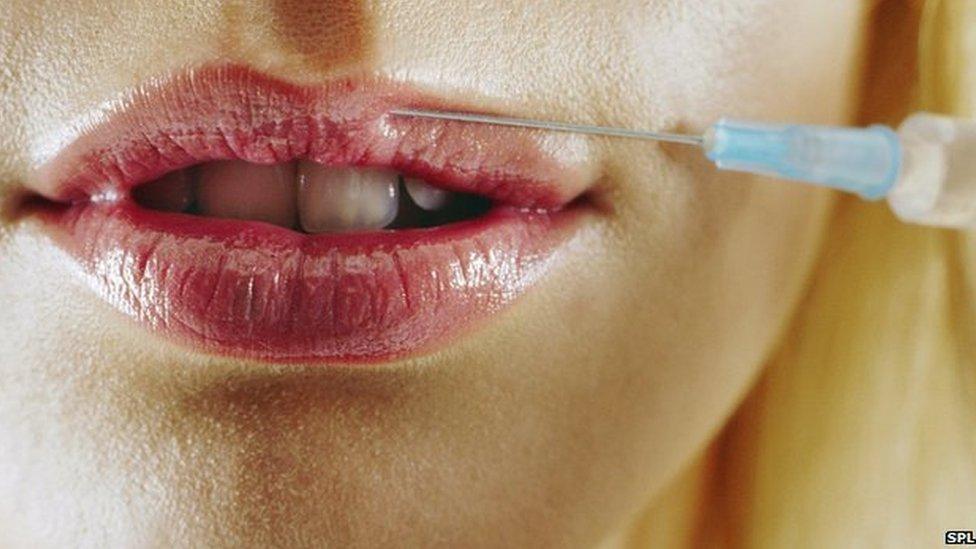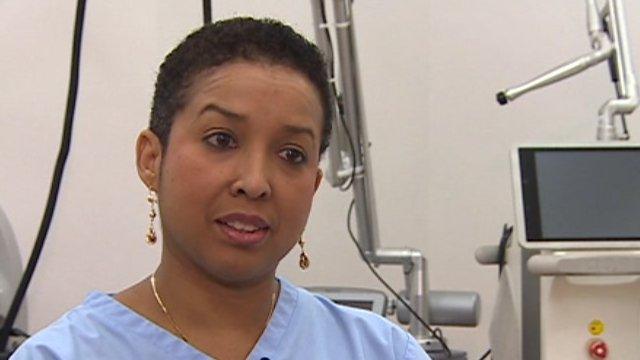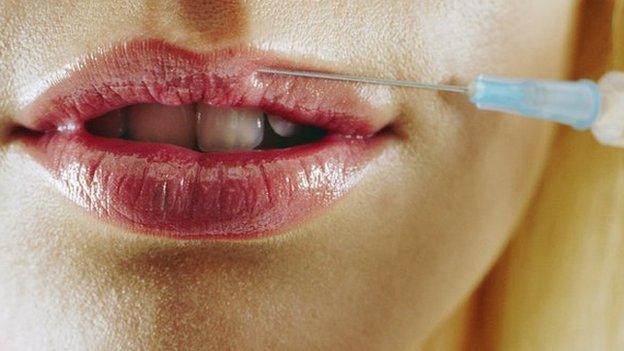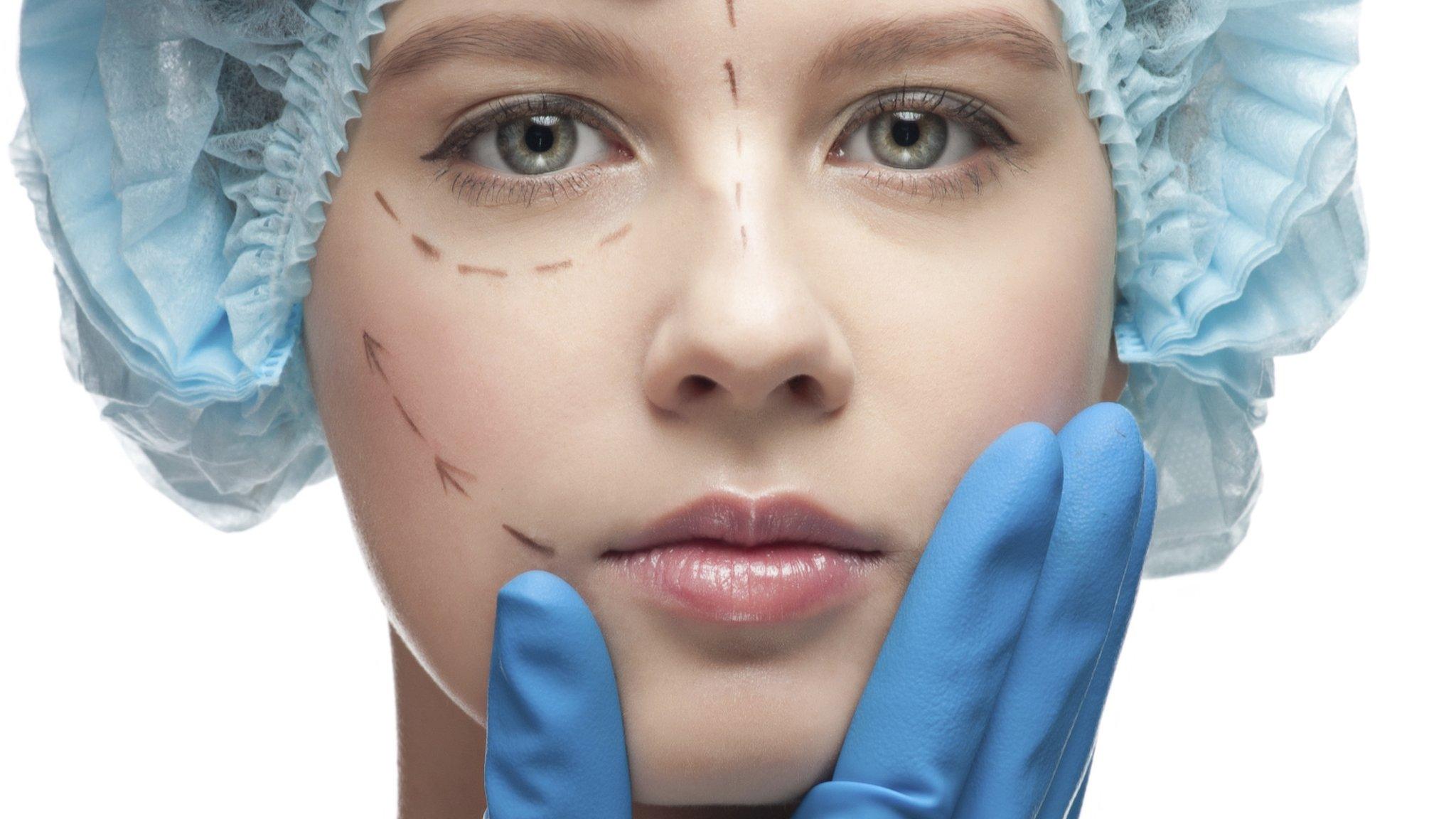Cosmetic laser clinic investigations rise in Wales
- Published
Consultant dermatologist Maria Gonzalez wants clinics regulated
The number of cosmetic laser clinics being investigated for not being registered has increased significantly, a BBC Wales investigation has found.
Healthcare Inspectorate Wales (HIW) currently checks premises providing non-surgical laser or Intense Pulsed Light (IPL) skin procedures.
It also wants the government to look at the risks of mobile laser services, botox and dermal fillers.
The Welsh government said more regulation may be given in the future.
HIW has visited 24 premises since April 2015 after reports they were dodging registration and is currently investigating a further 37.
In 2014/15, it followed up just 10 reports of unregistered premises. Reports typically come from registered practitioners or from members of the public.
Registration with HIW costs around £500 per year and is based on inspection of premises and equipment.
However, it does not include an assessment of the practitioner's training or ability.

Laser and IPL treatment are commonly used for treating skin blemishes or for hair or tattoo removal.
Alun Jones, director of inspection, regulation and investigations for HIW, said since 2011 there has been a 70% increase in the number of registered laser services.
He added: "We've become aware of more services which aren't registered and that's a criminal offence which can lead to a fine.
"They sometimes dodge the regulation, don't want to pay the fee, don't want the scrutiny, but sometimes they're naïve and don't realise what's required of them under the regulations."
HIW also wants a national register of non-surgical cosmetic practitioners.
Locum consultant dermatologist Maria Gonzalez, who works in the NHS and private practice, said she had come across several patients who had suffered severe burns and scarring during laser treatment.
'Major disaster'
"It's about how you manage those complications - about recognising there's a problem and stopping before it becomes a major disaster," she said.
The Public Health (Wales) Bill is currently being scrutinised by the Welsh Assembly's health and social care committee and a report is expected at the end of November.
The bill includes specific proposals for a licensing scheme for providers of tattoo, acupuncture, body piercing and electrolysis, which will be run by local authorities.
But a Welsh government spokesman said: "Whilst certain procedures have not been included… the legislation enables ministers to amend, via regulations, the list of special procedures."
A Welsh government Green Paper on NHS governance, which is currently out for consultation, is also expected to result in changes to the way HIW works.
- Published10 November 2015

- Published8 June 2015

- Published26 January 2015

- Published23 January 2015
